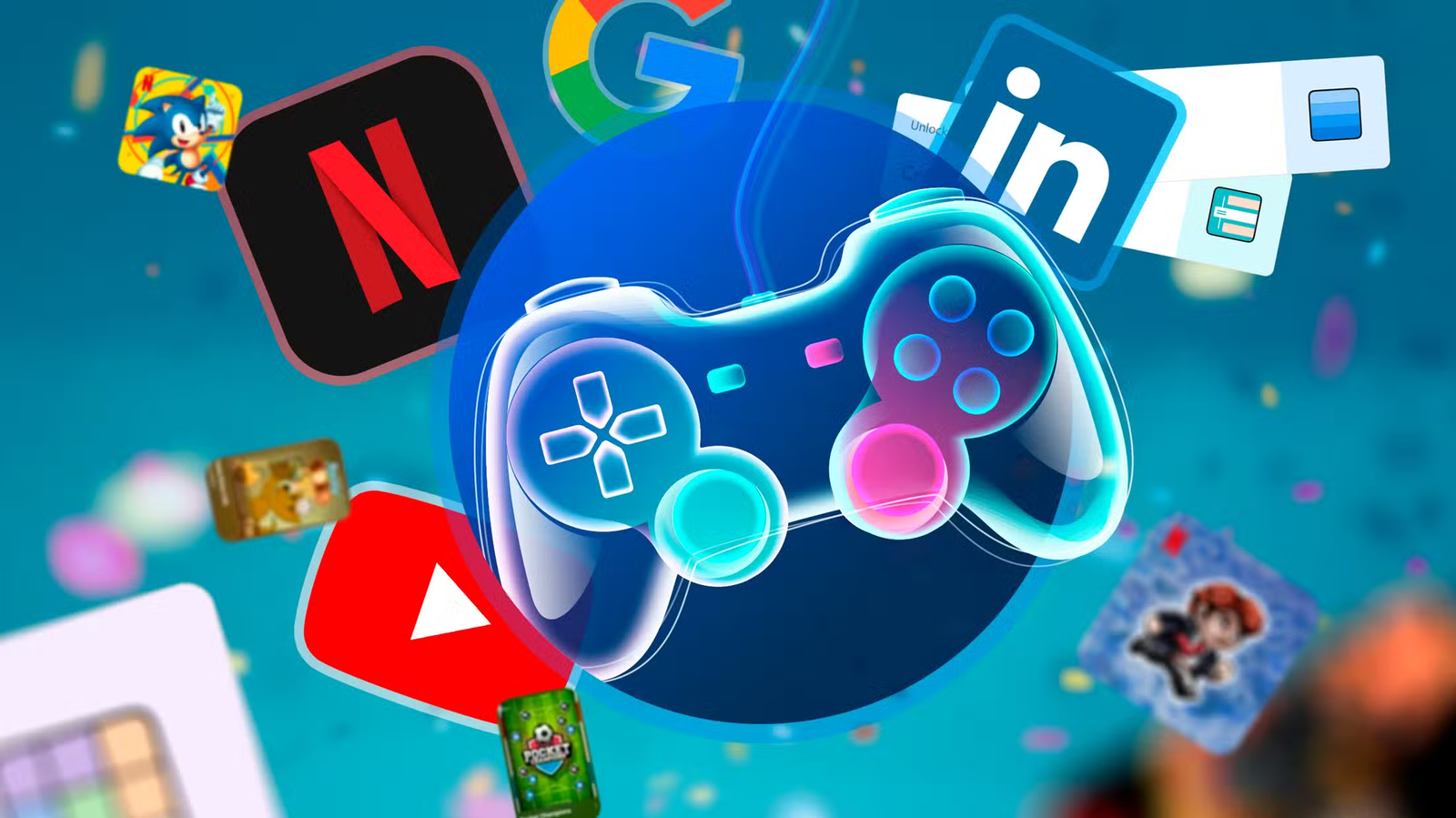
Andres Gonzales
27.11.2024 14:56
259
20 min
Unlocking Profits: A Comprehensive Guide to Earning Money by Selling Digital Games

In today's rapidly evolving digital landscape, earning money by selling digital games has become a lucrative opportunity for both independent developers and enthusiastic entrepreneurs. Whether you're a seasoned game developer or just stepping into the vibrant world of digital gaming, understanding how to earn money by selling digital games can open new financial doors. This comprehensive guide will delve into various strategies and tips to help you capitalize on this thriving market. With the right approach, selling digital games for profit can become not only a viable business venture but also a rewarding creative pursuit.
Main Points
- Understanding the digital game market landscape.
- Developing a compelling gaming product.
- Choosing the right platform for distribution.
- Implementing effective marketing strategies.
- Managing sales and customer engagement efficiently.
Understanding the Digital Gaming Market: Trends and Opportunities
The digital gaming market is a dynamic landscape, where understanding its trends can unlock numerous opportunities. For aspiring entrepreneurs, selling digital games for profit represents an enticing venture, but it requires keen insight. Yet, how does one navigate this complex arena? Here, convolutions become apparent. Several promising strategies could help individuals thrive:
- How to earn money by selling digital games: Identify niche markets. Engage with communities to understand their preferences.
- Ways to make money selling digital games: Leverage digital platforms. Utilize marketing tools effectively.
- Embrace evolving technology: Innovate and adapt to changing consumer behaviors.
The journey through digital gaming sales may seem convoluted, but mastering these elements could redefine one's approach, ensuring significant rewards. Adaptability and foresight remain your allies in this ever-changing environment. Harness these insights, and the prospect of success becomes tangible.
Choosing the Right Platform for Selling Your Digital Games
When you're venturing into the world of digital game sales, selecting the right platform is crucial. Your choice can significantly impact how to profit from selling digital games. However, the myriad of options available may leave you puzzled. Steam offers vast user reach, yet high competition exists. Itch.io supports indie developers but lacks mainstream clout. Consider your game's genre, target market, and promotional strategy. A well-crafted approach aids in discovering effective strategies for selling digital games and earning money. You might explore bundling offers or seasonal sales. Remember, visibility and reach are key. Balance them with commission rates. Ultimately, the right platform aligns with your brand and financial goals, helping you realize how to make money with digital game sales.
Crafting a Winning Game Concept That Captivates Players
Creating an engaging game concept requires a mix of creativity and strategy. Firstly, take a unique approach. Inject your personal touch to stand out among oceans of digital games. Secondly, highlight the game's core mechanics. Make players feel they're part of an entirely new world, which adds intrinsic value, ultimately leading to higher earning potential. Moreover, emphasize captivating stories and characters. This hierarchy doesn't just attract players but keeps them coming back, enhancing your success. Lastly, never forget the importance of feedback. It serves as a compass for tweaking to perfection, shaping a game refined over time.
Strategies for Pricing Your Digital Games for Maximum Profit
Setting the right price for your digital games can elevate your business. However, achieving maximum profit requires careful consideration of various factors. First, thoroughly understand your target audience's willingness to pay. While competition analysis is critical, do not mimic rivals blindly. Explore different pricing models such as freemium, paid, or subscription to fit your game type. Experimentation with pricing can reveal insights previously unconsidered. Introducing seasonal discounts or bundles might entice buyers, yet overuse can dilute brand value. Consider platform fees and royalties in your calculations. While balancing these elements can be complex, mastering them can significantly enhance profitability. Remember, pricing is not a one-time task but a consistent evolution.
Effective Marketing Techniques to Boost Sales of Your Games
Boosting the sales of your games requires a delicate mix of creativity and analytics. Firstly, identify your target audience; their preferences shape your marketing strategy. Surprisingly, a unique storyline or captivating graphics might not be enough. You need strategic partnerships and promotional offers that cater to the whims of gamers. However, remember, social media is a powerful tool. Engage directly with your audience, yet avoid aggressive sales pitches. Lastly, utilize feedback loops; they offer insights that help refine marketing efforts. These techniques, while seemingly straightforward, hide layers of complexity demanding exploration.
Leveraging Customer Feedback to Enhance Game Development
In the evolving world of game development, the role of customer feedback cannot be overstated. Game studios often navigate a labyrinth of expectations, trends, and rapid technological advancements. Understanding player reactions through feedback is pivotal. Moreover, harnessing this data effectively could be the difference between a game's success and its oblivion.
However, not all feedback is easy to interpret. At times, vague comments can leave developers scratching their heads. Is a "slow pacing" remark about the narrative arc, or the actual gameplay mechanics? Developers must decipher such intricacies to make informed decisions.
"Player feedback is the compass guiding a game's ultimate direction," says game analyst John McCarthy.
Yet, feedback alone isn't sufficient. Developers need to balance these insights with their creative vision. Innovation can flourish when constructive feedback complements a robust development strategy. Nevertheless, it's crucial to remain open-minded. By doing so, studios not only meet player expectations but often exceed them. When executed well, this synergy leads to games that are both innovative and player-centric.
In sum, leveraging customer feedback effectively can lead to enhanced game development, where both the community and developers feel a sense of ownership and satisfaction in the final product.
Legal Considerations and Intellectual Property Protection for Game Developers
Game developers often face a web of legal intricacies that can seem overwhelming. Intellectual property protection is crucial, yet many overlook the complexities involved. Consider trademarks: they guard game titles, logos, and slogans but require precise categorization to be effective. Copyrights protect the creative elements like art, music, and narrative, but their boundaries can blur. Patents: an unexpected area, perhaps, but they cover unique game mechanics and technologies. Emerging technologies further complicate the landscape, leaving developers wondering where to begin. Beyond individual registration, understanding how these protections interplay is vital. The global market adds another layer, with varying legal frameworks necessitating specialized knowledge or risk unintended violations. Proactive legal strategies ensure developers safeguard their creations while navigating these intricate terrains.
Frequently Asked Questions
How can I start selling digital games?
To start selling digital games, you need to choose a platform to sell on, such as Steam, Epic Games Store, or itch.io. Register as a developer or publisher and follow their guidelines to list your game. You will also need to create a marketing strategy to reach potential customers.
What are the best platforms for selling digital games?
Some of the best platforms for selling digital games include Steam, Epic Games Store, GOG, and itch.io. Each platform has its own audience and offers different revenue shares and exposure opportunities, so it's important to choose one that aligns with your goals.
Do I need to pay any fees to sell my games?
Most platforms do not charge an upfront fee to list your games, but they usually take a percentage of your sales. For example, Steam typically takes a 30% cut, while itch.io allows you to set your own revenue share. Be sure to read the terms of each platform before committing.
How can I market my digital game effectively?
Effective marketing strategies for digital games include leveraging social media, building a community around your game through forums and Discord, reaching out to influencers and reviewers, and participating in game jams or expos. It's also important to create engaging content and keep your audience updated on developments.
What should I consider when pricing my digital game?
When pricing your digital game, consider factors like the game's length and depth, your target audience, and competitors' pricing. Make sure your pricing reflects the value offered to players, and think about implementing sales or discounts strategically to boost visibility and attract more customers.

Andres Gonzales - Editor
14.11.2024 16:48
32
Andres Gonzales has 12 years of experience in digital video game and gift card distribution, and has been studying digital marketing since 2015.
Buy Wholesale or Retail
Video Games and Gift Cards
Best Price Guarantee!









NEWSLETTER
Subscribe to our newsletter and receive our articles about games directly to your email.
